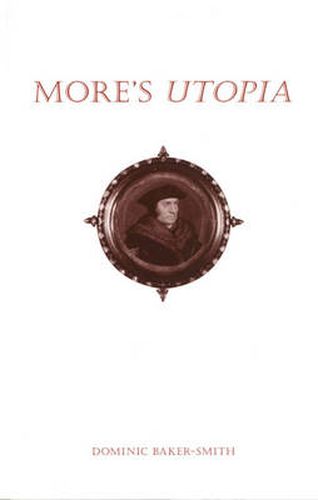Readings Newsletter
Become a Readings Member to make your shopping experience even easier.
Sign in or sign up for free!
You’re not far away from qualifying for FREE standard shipping within Australia
You’ve qualified for FREE standard shipping within Australia
The cart is loading…






Utopia has a strong claim to be the most misunderstood book ever written; its name has been hijacked by countless idealistic schemes having little in common with More’s own assessment of social possibilities. For although it contributes to a line of argument that can be traced from Plato to Marx, Utopia is first and foremost a literary work that appeals to the imagination and seeks to question us rather than to proffer answers.
This study prepares the reader for these challenges, placing the work in the context of early sixteenth-century Europe and the intellectual preoccupations of More’s own humanist circle, and clarifying those sources in classical and Christian political thought that provoked his writing.
Utopia is presented as a penetrating reflection on political idealism, one that has lost none of its relevance in an age that has witnessed the collapse of Marxists aspirations to social control. Dominic Baker-Smith also surveys the varied critical reception accorded to Utopia over the last four centuries, providing an intriguing look at Utopia’s role in cultural history.
$9.00 standard shipping within Australia
FREE standard shipping within Australia for orders over $100.00
Express & International shipping calculated at checkout
Utopia has a strong claim to be the most misunderstood book ever written; its name has been hijacked by countless idealistic schemes having little in common with More’s own assessment of social possibilities. For although it contributes to a line of argument that can be traced from Plato to Marx, Utopia is first and foremost a literary work that appeals to the imagination and seeks to question us rather than to proffer answers.
This study prepares the reader for these challenges, placing the work in the context of early sixteenth-century Europe and the intellectual preoccupations of More’s own humanist circle, and clarifying those sources in classical and Christian political thought that provoked his writing.
Utopia is presented as a penetrating reflection on political idealism, one that has lost none of its relevance in an age that has witnessed the collapse of Marxists aspirations to social control. Dominic Baker-Smith also surveys the varied critical reception accorded to Utopia over the last four centuries, providing an intriguing look at Utopia’s role in cultural history.